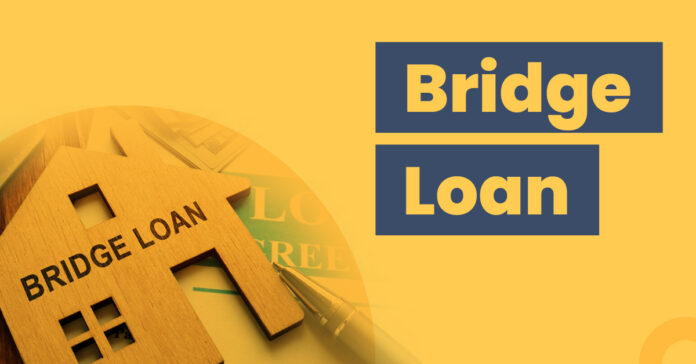Obtaining real estate is a costly enterprise. Unless you are independently wealthy, the chances of you having enough cash lying around to make a sizable property investment are not very high. That leaves you but one choice: financing. In some cases, a bridge loan is the best financing tool for the job.
Bridge loans represent a peculiar kind of loan unlike most other loan products on the market. They are rarely offered by banks and credit unions. Rather, bridge loans are the domain of private lenders. These can be mortgage lenders, hard money lenders, and even individuals who choose, of their own accord, to loan out a portion of their personal wealth.
What makes the bridge loan different is its intended purpose. That purpose is found in the name itself. If you are looking to buy real estate under certain conditions, a bridge loan might be your best bet for getting a deal done quickly.
Bridge Loans Bridge the Gap

As for the purpose of a bridge loan, think of it as bridging the gap between an immediate financial need and a future source of income. The best way to understand it in terms of real estate transactions is looking to buy a new house while you are also trying to sell your current house.
What if you find your dream home before your current property gets an offer? You could apply for a bridge loan from a private lender. If approved, that loan would give you the money to purchase your dream home. Meanwhile, the lender is relying on you to repay what you borrowed when your current home sells.
It is important to note that bridge loans for residential transactions are rare. They were pretty popular prior to the 2007/2008 housing crash. Since then, mortgage lenders have been reluctant to dive back into the bridge loan pool. As such, most loans these days go toward commercial real estate.
Bridge Loans for Property Investors

Bridge loans are commonplace among property investors looking to obtain new office buildings, strip malls, warehouses, etc. Accordingly, private hard money lenders like Salt Lake City, Utah’s Actium Partners do very well with this sort of lending. Nearly all of these Actium’s approved loans go to real estate investors.
A typical scenario involves an investor in need of fast cash to close on an office building before it is gone. The investor offers an exit strategy detailing how he will come up with the money to repay the loan. A common scenario is traditional financing obtained after closing.
Actium provides the money to get the deal to closing. Shortly thereafter, the investor can start applying with banks or private lenders for a traditional loan based on the rental value of the property in question. Once a traditional loan is secured, it can be used to pay off the bridge loan.
Bridge Loans Are Short Term Loans
One of the key features of the bridge loan is its short-term nature. This funding is short term funding whether it finances a residential property or commercial real estate. Terms tend to be no longer than two or three years, at most. Hard money lenders prefer terms of 24 months or less.
The risk of obtaining a bridge loan is found in the fact that you are offering your property as collateral. In some cases, it is the property you currently own while in other cases it is the property being acquired. Either way, failing to pay back a loan on its maturity date could mean losing a valuable piece of real estate. Caution is always recommended with bridge financing.
Understanding Bridge Loan Costs and Risks
Costs Associated with Bridge Loans
Bridge loans, while beneficial in certain situations, come with costs that borrowers should be aware of. The interest rates for these loans are generally higher than traditional loans due to their short-term nature and higher risk. Additionally, borrowers might face origination fees, appraisal fees, and other closing costs. These expenses can add up quickly, making bridge loans a more expensive option compared to other financing methods.
Risk Factors
The primary risk with these loans lies in the reliance on the sale of the current property or securing long-term financing. If the borrower’s property doesn’t sell within the loan term, or if they fail to obtain traditional financing, they risk defaulting on the loan. This could lead to the loss of collateral, which is often the property itself. Therefore, understanding market conditions and having a solid exit strategy are crucial when considering a bridge loan.
The Role of Credit and Financial Health in Bridge Loan Approval

Credit Requirements
While bridge loan providers, especially hard money lenders, might be more flexible with credit requirements than traditional banks, a good credit score can still play a crucial role in the approval process. Borrowers with higher credit scores might secure better interest rates and terms. It’s important for potential borrowers to review their credit history and make any necessary improvements before applying for a bridge loan.
Evaluating Financial Health
Lenders will also assess the borrower’s overall financial health, including income, debt-to-income ratio, and financial reserves. This assessment helps ensure that the borrower can manage the additional loan burden, especially since bridge loans are typically an added expense on top of existing mortgages.
The Application and Approval Process for Bridge Loans
Application Steps
The process of applying for a bridge loan involves several steps. Initially, the borrower must provide details about their current property and the property they intend to acquire. This includes the value, existing mortgages, and intended use of the properties. The borrower also needs to present a clear exit strategy, showing how they plan to repay the loan.
Approval and Funding Timeline
One of the advantages of bridge loans is the relatively quick approval and funding process, especially when compared to traditional mortgages. Depending on the lender and the complexity of the transaction, bridge loans can be approved and funded within a matter of weeks, which is essential for time-sensitive real estate transactions.
Comparing Bridge Loans with Other Financing Options

Alternative Financing Solutions
It’s essential for potential borrowers to consider alternatives to bridge loans. Options like home equity lines of credit (HELOC), home equity loans, or even personal loans might be more suitable, depending on the borrower’s financial situation and needs. Each of these alternatives comes with its own set of advantages, disadvantages, and cost structures.
The Impact of Market Conditions on Bridge Loan Viability
Market conditions play a crucial role in determining the viability and attractiveness of bridge loans in real estate transactions. The real estate market is highly volatile, with fluctuations in property values and demand that can significantly impact the risk associated with bridge loans. For instance, in a booming real estate market, properties might sell quickly, making bridge loans a less risky option for both lenders and borrowers. This scenario provides a higher degree of confidence that the borrower can repay the loan once the original property is sold. Additionally, since bridge loans are typically secured loans, where the borrower uses the property as collateral, the lender has an added layer of security. This aspect makes bridge loans more appealing in a robust market where property values are expected to remain stable or increase.
Making an Informed Decision
When deciding whether to opt for a bridge loan, comparing the costs, terms, and requirements of different financing options is vital. Borrowers should carefully consider their short-term and long-term financial goals, the current real estate market, and their risk tolerance. Consulting with financial advisors and mortgage professionals can provide valuable insights and guidance in making an informed decision.









